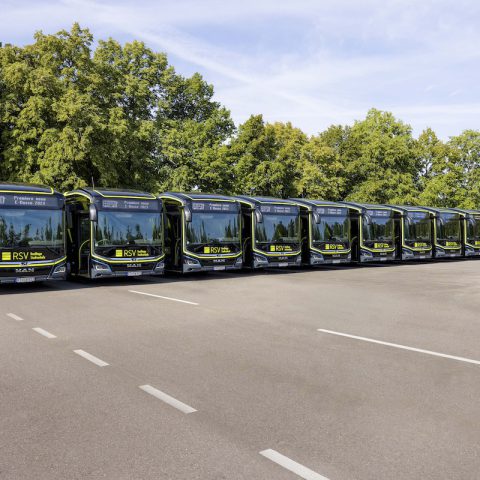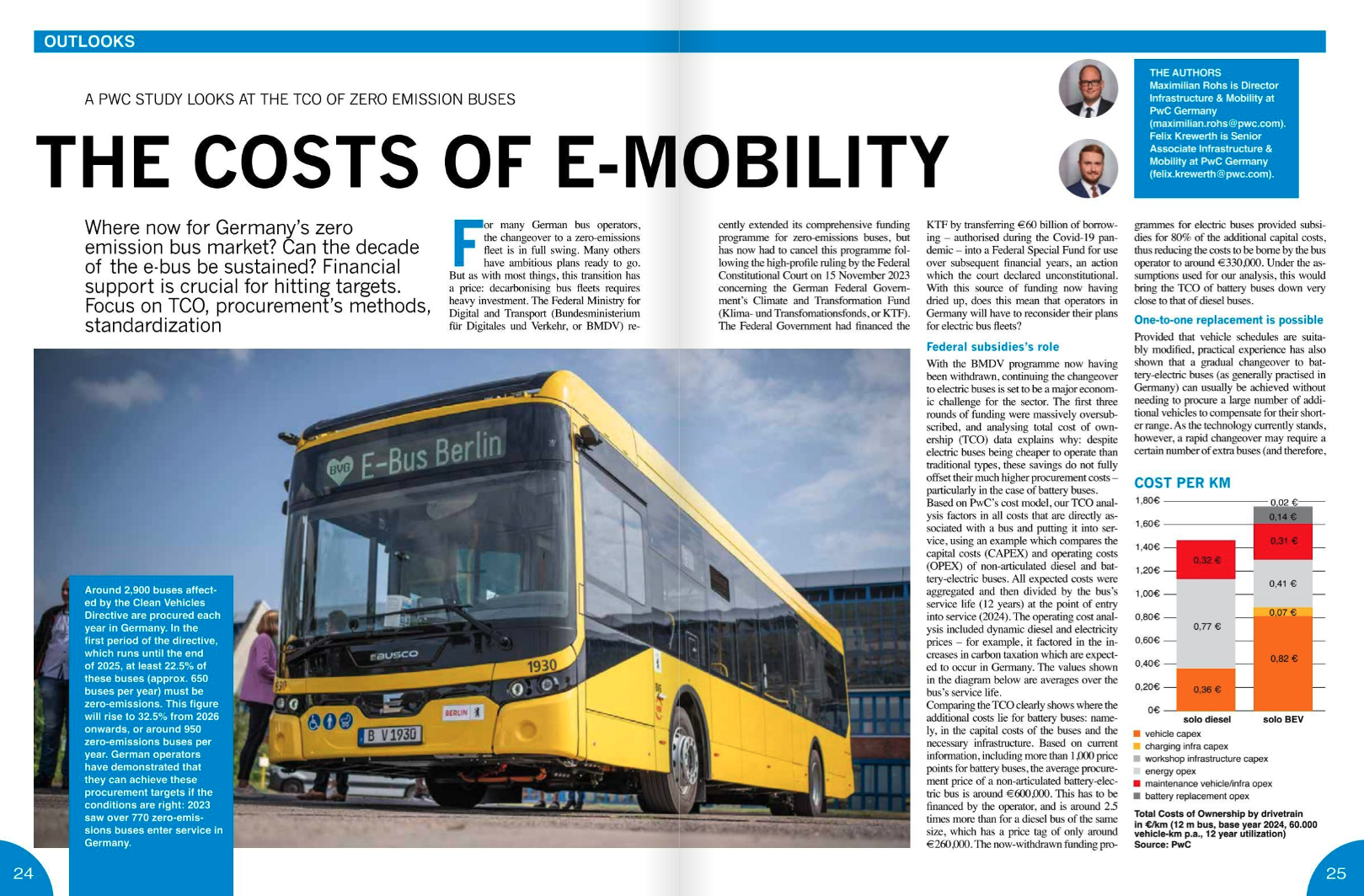Germany to halt subsidies for electric buses (and trucks)
Germany has stopped subsidizing electric trucks and buses. Such a decision follows a similar one concerning electric cars, taken not long ago. The Government used to subsidize the purchase of heavy-duty vehicles with alternative drives so to cover about 80 percent of the price difference compared to a diesel vehicle. Germany placed second in Europe in 2023 […]

Germany has stopped subsidizing electric trucks and buses. Such a decision follows a similar one concerning electric cars, taken not long ago. The Government used to subsidize the purchase of heavy-duty vehicles with alternative drives so to cover about 80 percent of the price difference compared to a diesel vehicle.
Germany placed second in Europe in 2023 for number of BEV bus’ registrations, behind UK (it’s therefore the first country in EU). E-bus registrations in Germany grew +29 last year. Looking at the complete German bus&coach market, a total of 5,493 new buses and coaches (over 3.5 tons) were newly registered in Germany from January to December, compared to 4,883 in 2022. However, 2021 data were much higher: 6,474 new buses and coaches were registered in that year.
Funding for e-buses in Germany on the latest Sustainable Bus magazine
The topic of incentives for e-bus transition in Germany and their dismission is the topic of a contribution by Maximilian Rohs and Felix Krewerth (PwC Germany) just published on Sustainable Bus magazine February 2024, out today. Their incipit reads: “The Federal Ministry for Digital and Transport (Bundesministerium für Digitales und Verkehr, or BMDV) recently extended its comprehensive funding programme for zero-emissions buses, but has now had to cancel this programme following the high-profile ruling by the Federal Constitutional Court on 15 November 2023 concerning the German Federal Government’s Climate and Transformation Fund (Klima- und Transfomationsfonds, or KTF). The Federal Government had financed the KTF by transferring €60 billion of borrowing – authorised during the Covid-19 pandemic – into a Federal Special Fund for use over subsequent financial years, an action which the court declared unconstitutional. With this source of funding now having dried up, does this mean that operators in Germany will have to reconsider their plans for electric bus fleets?“.
Click HERE and reach page 24 for the complete article!

No more funding for new e-buses in Germany
The trade agency Electrive now reports the words of a spokesperson for the Federal Ministry for Digital and Transport (BMDV), who said: “The approved projects in the guideline will be fully financed based on the 2024 budget. There are no funds available for a new call for funding“.
“The call for the third round of funding for electric buses ran from June to September 2023. However, only 23 transport companies had gotten a green light for funding by November 2023, while 140 transport companies have already received a rejection – reads Electrive’s article authored by Cora Werwitzke -. The funding programme was to continue until 2025. So far, the government has approved grants under the directive for around 4,000 buses with alternative drive systems. However, this does not include all vehicles approved in the third round of funding. In addition, the government also mentions around 1,550 vehicles from previous funding programmes – primarily from the 2018 directive to promote the purchase of electric buses in public transport”.
German Federal Ministry of Transport had handed over today funding certificates for 59 transport companies (and around 1,033 electric buses) at VDV e-bus conference ElekBu 2023. From 2021 until 2023, there had been two so-called “calls” issued by the Federal ministry. They were part of German government’s project to fund electric buses with 1.25 billion euros until 2024. In the first call, around 5,000 buses were applied for, with 3,174 buses (around 63 per cent) effectively funded, VDV stated. In the second call, about 3,700 applications were received: between 1,200 to 1,400 buses were funded, i.e. around 32 percent.








